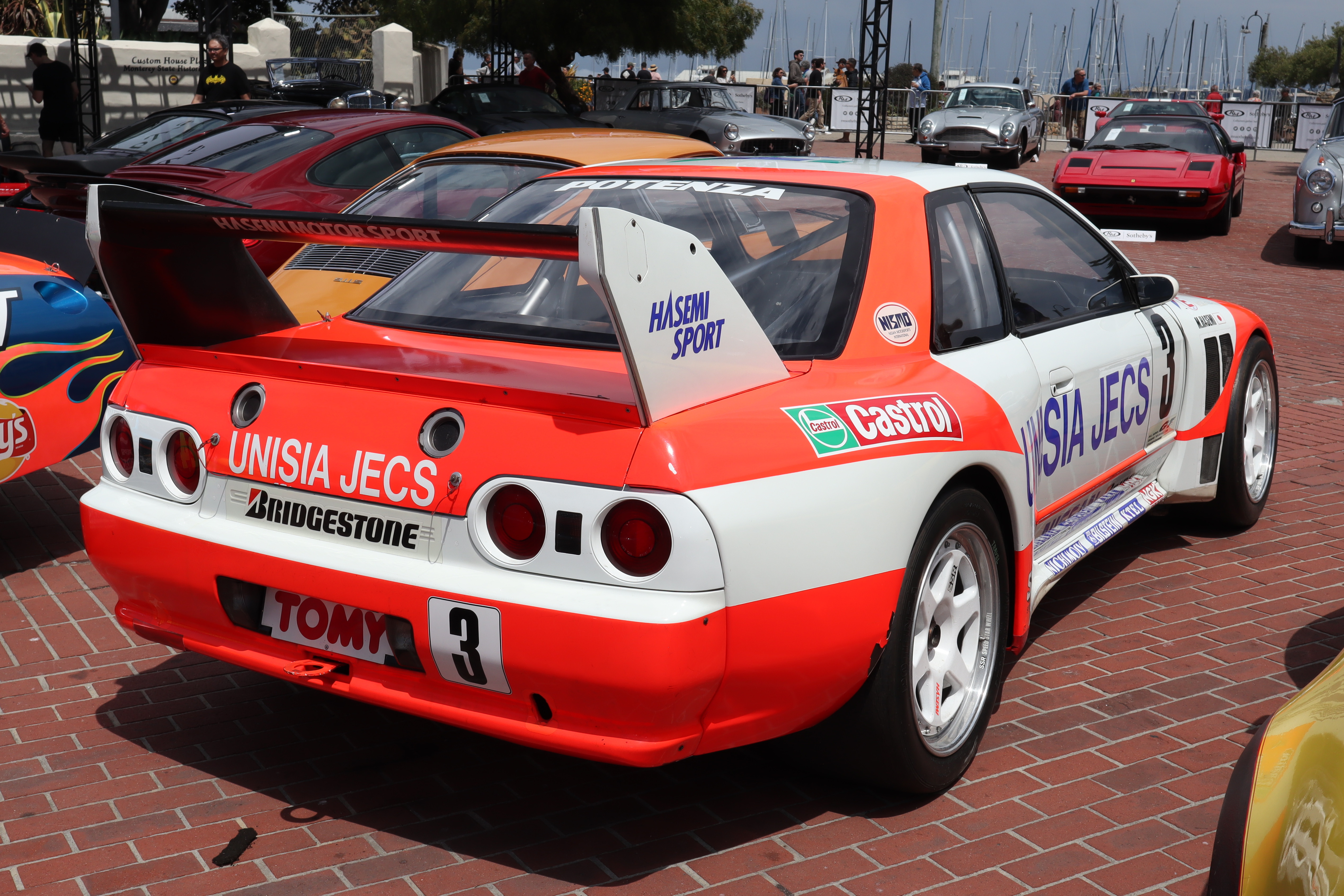Race Car Import Guide: How to Bring Competition Vehicles to the US
Importing race cars to the United States involves navigating complex regulations across multiple federal agencies. At West Coast Shipping, we've facilitated hundreds of race car imports for professional teams, privateers, and collectors. This comprehensive guide covers EPA exemptions, DOT requirements, and customs procedures specifically for competition vehicles entering the US market.
Understanding Race Car Import Categories
Unlike standard passenger vehicles, race cars may qualify for several import exemptions depending on their intended use and specifications. The primary categories include:
Temporary Race Car Importation
For vehicles entering the US temporarily for specific events, competitions, or testing. This category allows cars to enter duty-free for up to one year.
Show and Display Exemption
For historically or technologically significant race cars that don't meet US safety standards but qualify for limited annual mileage importation.
Competition Vehicle Exemption
For purpose-built race cars that will never be used on public roads and qualify for reduced tariffs under specific HS codes.
As detailed in our race car tariff exemption guide, proper classification can save tens of thousands in import duties.
EPA Requirements for Race Car Imports
EPA Exemption for Competition Vehicles
Race cars built exclusively for competition may qualify for EPA exemption under several categories:
Nonroad Vehicles: Cars designed solely for closed-course competition and never intended for highway use.
Racing Vehicles: Purpose-built vehicles that lack equipment required for street legal operation.
Test Vehicles: Prototypes or development vehicles used for automotive testing and research.
Documentation Required by EPA
To obtain EPA exemption, you must provide:
-
Manufacturer certification that the vehicle was built exclusively for racing
-
Technical specifications proving the vehicle lacks required street equipment
-
Competition documentation showing the vehicle's racing history or intended use
-
Owner declaration confirming the vehicle will not be used on public roads
EPA Application Process
Unlike tourist vehicle imports, race cars often qualify for exemptions that don't require advance approval letters. However, proper documentation at the border is critical to avoid delays.
DOT Requirements for Race Car Imports
DOT Form HS-7 Completion
Race cars typically qualify for DOT exemption under several categories on Form HS-7:
Box 8: Vehicles not subject to safety standards (for purpose-built race cars)
Box 9: Vehicles imported for show or display (for historically significant race cars)
Box 2: Vehicles temporarily imported (for cars entering for specific events)
Safety Standard Exemptions
Competition vehicles may be exempt from Federal Motor Vehicle Safety Standards (FMVSS) if they:
-
Were never manufactured for public road use
-
Lack basic safety equipment required for street vehicles
-
Are intended solely for closed-course competition
-
Will be used exclusively on private property or race tracks
Customs Classification and Tariff Considerations
HS Code 9903.94.02 Exemption
As outlined in our tariff exemption analysis, purpose-built race cars may qualify for 0% duty under HS code 9903.94.02 if they meet specific criteria:
Non-Passenger Vehicle Designation: The vehicle must lack features required for street registration including:
-
DOT-approved lighting systems
-
VIN plate with passenger car designation
-
Removable roll cage or safety equipment
-
Street-legal emissions equipment
Manufacturer Documentation: Build sheets specifying "competition use only" and manufacturer letters confirming track-only design.
Entry Documentation: Commercial invoices stating "Not for road use" and proper HS code declaration.
Potential Savings
Proper classification can result in significant savings. For example, a $250,000 race car could save:
-
$62,500 in import duties (25% to 0%)
-
Additional VAT reduction on the total landed cost
Customs Clearance Process for Race Cars
Required Documentation at the Border
When your race car arrives at a US port, customs officials will require:
EPA Documentation: Either exemption letter or proof that vehicle qualifies for automatic exemption
DOT Form HS-7: Properly completed with appropriate exemption category selected
Commercial Invoice: Clearly stating "Competition vehicle - not for road use"
Bill of Lading: Transport documentation from shipping company
Technical Specifications: Proving the vehicle's competition-only design
Customs Broker Recommendations
Given the complexity of race car imports, we strongly recommend using a customs broker experienced with competition vehicles. They will ensure:
-
Proper HS code classification for maximum tariff savings
-
Correct completion of all required forms
-
Smooth clearance process without delays
-
Compliance with all federal regulations
State-Level Considerations
Registration Requirements
Most states do not require registration for vehicles that will never be operated on public roads. However, some considerations include:
Track Insurance: Many racing organizations require proof of liability coverage
Transportation: Moving the vehicle between tracks may require special transport permits
Storage Regulations: Some municipalities have restrictions on storing race cars in residential areas
California Specific Requirements
California has additional environmental regulations that may affect race car imports:
-
CARB Compliance: Racing fuels and emissions equipment may be subject to state regulations
-
Noise Ordinances: Local sound restrictions may limit where vehicles can be operated
Temporary vs. Permanent Import Strategies
Temporary Importation (Up to 1 Year)
Ideal for:
-
Cars entering for specific racing seasons
-
Development vehicles for testing programs
-
International teams competing in US series
Benefits: No import duties, simplified customs process
Requirements: Must export vehicle within one year
Permanent Importation
Better for:
-
Vehicles purchased for long-term competition programs
-
Classic race cars for collection or historic racing
-
Cars that will be based permanently in the US
Benefits: No export requirement, full ownership transfer
Requirements: Payment of applicable duties and taxes
Sample EPA Application Letter for Temporary Race Car Importation (Nonresident Use)
[Your Full Name]
[Your Foreign Address]
[City, Country, Postal Code]
Phone: [Your Phone Number]
Email: [Your Email Address]
Date: [Current Date]
TO:
EPA Import Line
Compliance & Innovative Strategies Division
Light Duty Vehicle Programs
2000 Traverwood Drive
Ann Arbor, MI 48105
Subject: Request for Nonresident Temporary Importation Approval – Competition Vehicle
Dear EPA Imports Team,
I am writing to request a nonresident temporary exemption under the EPA’s competition-use allowance for the importation of my race car. This vehicle will be used exclusively for participation in sanctioned motorsport events in the United States.
Personal Information:
Name: [Your Full Name]
Foreign Address: [Complete Foreign Address]
Foreign Phone: [Your Phone Number]
Email: [Your Email Address]
US Contact Information During Visit:
US Address: [US Address During Stay or of Event Organizer]
US Phone: [US Phone Number]
Duration of Stay: [Start Date] through [End Date]
Vehicle Information:
Year: [VEHICLE YEAR]
Make: [VEHICLE MAKE]
Model: [VEHICLE MODEL]
Vehicle Identification Number: [VIN NUMBER]
Country of Registration: [COUNTRY]
Event and Importation Details:
Purpose of visit: To participate in competitive motorsport events at [Name of Race/Event/Track], sanctioned by [Sanctioning Body – e.g., SCCA, FIA, IMSA].
Planned date of importation: [Import Date]
Requested duration of importation: [Duration – maximum 1 year]
Competition Use Declaration:
I certify that this vehicle is purpose-built or modified for racing and will be used solely in competitive events on closed courses during my stay in the United States. I further declare:
-
The vehicle will not be driven on public roads (except for transit with appropriate permissions if required)
-
It will not be sold, leased, or otherwise transferred to another party in the US
-
It will not be used for personal transport, commuting, or commercial activities
-
The vehicle was not manufactured to meet US EPA emission standards
Mandatory Consent Statement:
I consent to EPA collecting and storing my name, mailing address, email address, phone number, and Vehicle Identification Number (VIN).
Supporting Documentation Attached:
-
Copy of foreign vehicle registration/title
-
Copy of passport (proving nonresident status)
-
Proof of US address or race entry confirmation
-
Copy of event invitation or race registration documents
I understand this approval letter will be required to complete Form 3520-1 using CODE R for race/competition vehicle importation.
Sincerely,
[Your Signature]
[Your Printed Name]
Why Choose West Coast Shipping for Race Car Imports?
Specialized Racing Industry Experience
Our team understands the unique requirements of competition vehicles:
-
Technical Knowledge: We understand racing regulations and competition requirements
-
Customs Expertise: Experienced with HS code classification for race cars
-
Logistics Coordination: Specialized handling for valuable and delicate race cars
Comprehensive Services
-
Secure Container Shipping: Climate-controlled transport for sensitive race cars
-
Customs Clearance: Complete documentation and border clearance services
-
Door-to-Track Delivery: Direct transport to racing facilities
-
Insurance Options: Coverage appropriate for high-value competition vehicles
Professional Network
We work with:
-
Licensed customs brokers specializing in automotive imports
-
Racing industry freight forwarders
-
Competition vehicle insurance specialists
-
Track-to-track transport providers
You May Also Like
These Related Stories

Best Countries to Import American Muscle Cars in 2025: Tax Advantages

Famous Classic European Car Models Value: Rare Finds Shipped to USA

-093789-edited.png?width=220&height=79&name=wcs_final_logo_(1)-093789-edited.png)
